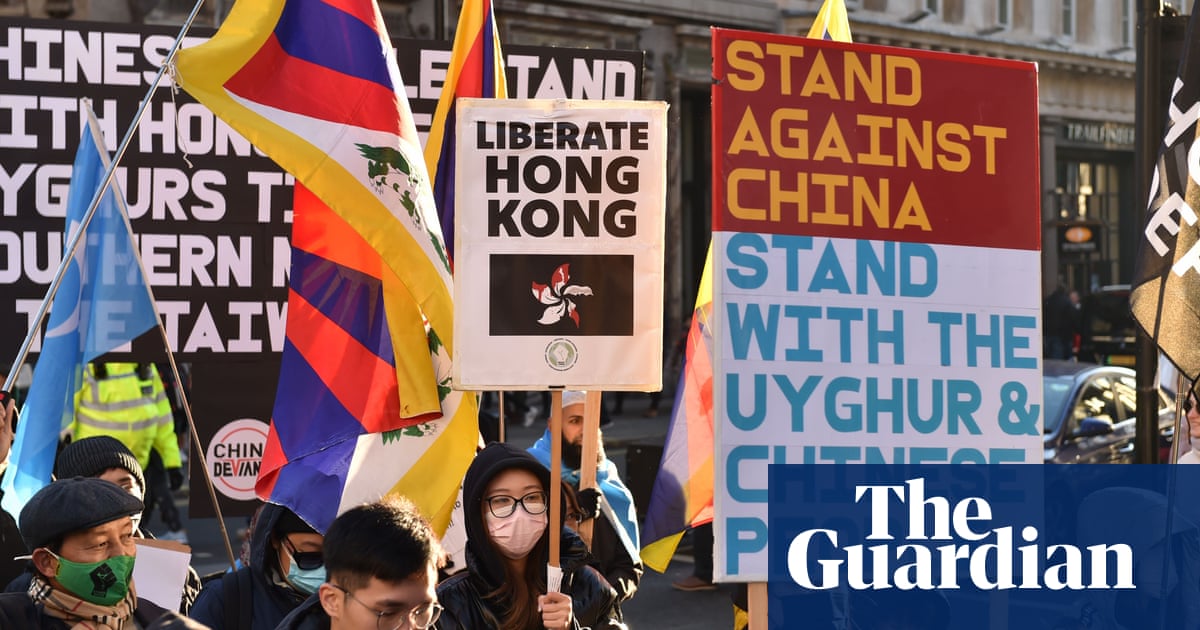
hese days, the police aren’t just engaged in the fight against crime. They’re also being asked to preside over cultural flashpoints. At various points, police relationships with different sections of the public have been severely tested, whether over Covid-19 restrictions, rows about statues, or demonstrations around the tragic death of Sarah Everard.
Now the government’s plans to use the police, crime, sentencing and courts bill to give police in England and Wales sweeping powers to put down protests look set to strain those relationships to breaking point. And it will leave a bad taste in the mouths of British people who value tolerance, democracy and open debate.
By giving police forces sweeping discretion about how they deal with protesters, this law would drive a wedge between them and the public. Among other things, the bill would allow police officers to impose any conditions they feel necessary on certain types of protest, and expand their power to shut down demonstrations they feel would be unacceptably noisy or a nuisance. Try defining the term “nuisance”, because parliament certainly won’t, and you see the problem.
Forcing the police, who are citizens in uniform, to make individual, highly charged decisions makes it inevitable that some will be inconsistent, and that means we’ll see individuals singled out for blame. The pressure on Cressida Dick and the Metropolitan police after the vigil for Sarah Everard gives us an inkling of the controversies that could blaze across the country if these sweeping powers are pushed on to the police. That risks making the force the scapegoat for every unpopular decision – a dangerous spot to be in for a service set up to police by consent.
Protest might be inconvenient for politicians, but it acts as a pressure valve, allowing citizens to express their views and vent frustrations that could otherwise boil over. Irish politicians such as John Finucane MP have drawn on their experience of the Troubles to warn that stifling protest won’t work and risks undermining the belief that each of us has a stake in society. If we suppress protest, we could see more anger towards institutions including the police, the judiciary and parliament. We would lose the civil engagement and sense of celebration that we see at events such as women’s marches or Pride.
It’s easy to stereotype protesters as leftwing. But this bill would mean alienating others across the centre and right wing of the electorate whom the government won’t want – or can’t afford – to lose: taxi drivers angry about Uber, say, or ardent Brexit supporters. The French gilets jaunes movement proved the appeal of a big-tent protest movement that mobilised citizens from the left, centre and right. However, the long burn turned out to be reactionary rather than revolutionary. The pendulum can swing either way.
Tolerating dissent and protest is a British value, and it’s central to our democracy. It’s ironic that this bill would mean far harsher treatment for protesters in Parliament Square, where statues commemorate Mandela and Gandhi, leaders of historic disruptive, noisy and annoying protest movements now taught in British schools.
Protecting statues and having a sensible dialogue about the relevance of the past to reshaping our future is just good common sense. So is any strengthening of the law needed to clarify how to deal with protest that gets out of hand (sometimes deliberately).
But this bill is, I think, so badly drafted that it should unite people from across the political spectrum. Conservative MPs Steve Baker and Dominic Grieve warned on Conservative Home that the bill could create uncertainty by giving too much discretion to the police. Fiona Bruce, Conservative MP and the prime minister’s special envoy for religious freedom, said it could have a profound chilling effect on free speech.
Theresa May urged the government to walk a fine line between being popular and populist. A former Met police commander said the bill would pit the police against the communities they serve. Time, therefore, for the government – if it really means to help the police rather than embarrass its opponents – to think again. The Queen’s speech takes place on 11 May. Instead of “carrying over” this legislation, they should start the process by redrafting it and seeking genuine consensus.
It is, of course, true that the public remains resolutely in support of the police, despite the controversies of the last year. The home secretary and prime minister will be hoping to ride out the loudest criticism – banking on a majority of voters in favour of a strict approach to law and order who quietly approve of a crackdown on protest.
But those voters want to see laws that support the police, not hinder them. Many would understand the need to deal with those who exploit democratic expressions of dissent and by doing so, paradoxically, play into the hands of their political opponents. But when they see government washing its hands of difficult decisions – while police forces are scapegoated and left to fail in public – that approval will shift.
Banning protest would make us more like Putin’s Russia than the UK. It would be a lasting and toxic legacy for Boris Johnson.
If this bill passes into law unamended, we’re heading for more ugly conflicts between the public and the police – and a police force that’s weaker for it.
David Blunkett was home secretary from 2001 to 2004












